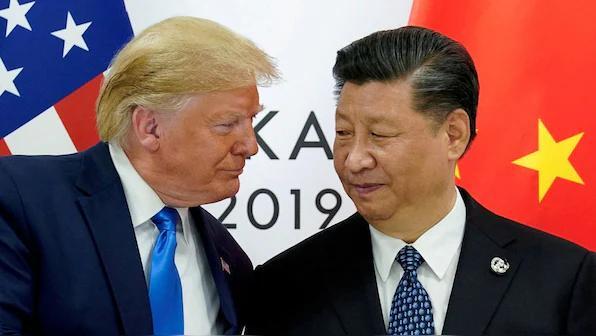
China Refuses to Join Denuclearisation Talks with US & Russia
In a recent development, China has refused to join trilateral denuclearisation talks with the United States and Russia, rejecting President Donald Trump’s call to include Beijing in future negotiations. The Chinese Foreign Ministry Spokesperson, Guo Jiakun, has stated that the expectation is “neither reasonable nor realistic” as China and the US are not at the same level when it comes to nuclear capabilities.
This decision comes as a significant blow to efforts to reduce the global nuclear threat, as China’s participation would have been crucial in any potential talks. The US and Russia have been engaging in bilateral discussions to reduce their nuclear arsenals, but the absence of China means that the three nations will not be able to work together to achieve a common goal.
China’s reluctance to join the talks is not surprising, given its growing military capabilities and its desire to maintain a certain level of ambiguity regarding its nuclear ambitions. The country has been rapidly increasing its military spending and has been modernizing its nuclear program, which has led to concerns among its neighbors and the international community.
The US has been pushing for China to join the denuclearisation talks, citing the country’s growing nuclear capabilities and its importance in any potential agreement. President Trump has been vocal about his desire to include China in the talks, saying that it would be a “big mistake” for the country to miss this opportunity.
However, China has been resistant to the idea, citing its concerns about the unequal nature of the talks. Guo Jiakun stated that China and the US are not at the same level when it comes to nuclear capabilities, and that the expectation of China joining the talks is “neither reasonable nor realistic”.
China’s decision to refuse the invitation to join the talks is a significant setback for the international community, which has been working towards reducing the global nuclear threat. The absence of China means that the US and Russia will have to continue their bilateral discussions, which may not be as effective in achieving a comprehensive agreement.
The implications of China’s decision are far-reaching, and it is likely to have significant consequences for the global nuclear landscape. The country’s refusal to join the talks means that it will not be bound by any potential agreement, and that it will continue to pursue its own nuclear ambitions.
The US and Russia will have to continue their bilateral discussions, which may not be as effective in achieving a comprehensive agreement. The absence of China means that the US will have to focus on its own nuclear capabilities, which could lead to a renewed focus on its nuclear modernization program.
China’s decision to refuse the invitation to join the talks is also likely to have significant implications for its relationship with the US and Russia. The country’s refusal to participate in the talks could lead to increased tensions and mistrust, and could potentially lead to a deterioration in relations.
In conclusion, China’s refusal to join denuclearisation talks with the US and Russia is a significant setback for the international community. The country’s decision is likely to have far-reaching consequences, and it is likely to impact the global nuclear landscape. The US and Russia will have to continue their bilateral discussions, and the international community will have to continue to work towards reducing the global nuclear threat.
Source:



